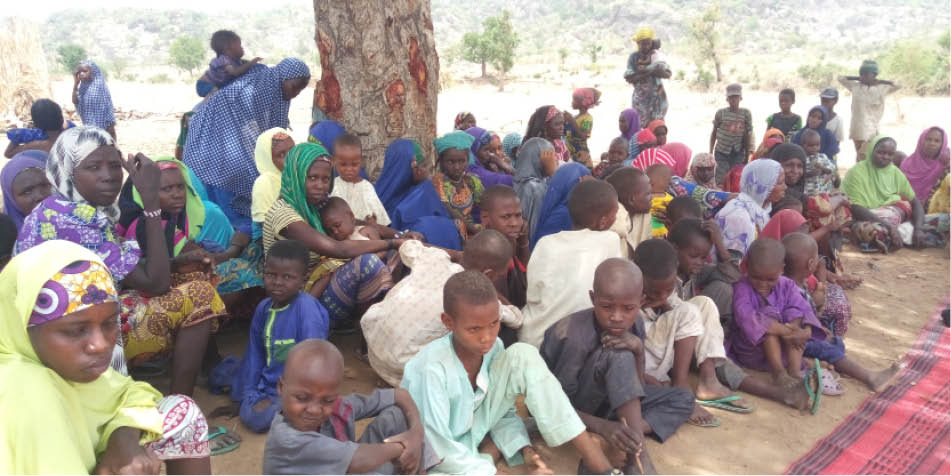A new report by the Save the Children has said that over two million girls, boys and care-givers are in need of psycho-social support services due to severe distress, hardship and displacement in Northeast Nigeria.
This is contained in the international non-governmental organisation’s report titled: “Families Torn Apart: Protecting and Caring for Children Separated from their families by the conflict in North East Nigeria”, formally launched on Tuesday in Abuja.
According to the report, one of the three unveiled by Save the Children to mark its centenary anniversary, 770,000 children and care-givers remain at risk of injury and loss of life from explosive remnants of war.
It quoted Humanitarian Needs Overview (HNO) as saying that there were 2.2million school-aged children and teachers in the North East who need immediate education emergency support.
It said that education is a key concern in the conflict of North East, and that 867 schools primarily in Borno state are still non-functional mainly due to inaccessibility as a result of insecurity.
“The conflict has exposed children to different forms of violence making them vulnerable to abuse, violence, neglect, and exploitation. Violence continues to cause death, injury, forced displacement, abduction and conflict related psychological distress,” it said.
The Save the Children in the report said child protection concerns for unaccompanied and separated children in Borno state are vast, and that the government, UN agencies and local as well as international humanitarian aid organisations have to work in extremely difficult circumstances to address these concerns.
The Save the Children International, Nigeria Country Director, Mr. Benjamin Foot, said the organisation would continue to fight for children every day.
“We will do whatever it takes to make sure they survive, get protection when they are in danger and have the chance to learn because every child should be able to make their mark on their world and help to build better future for us all.
“All actors must renew their commitment and join forces to fight to create conducive environment for children to learn, be protected and grow up healthy,” Foot said.
He said that this can be a reality when proper policies and strategies are in place and are integrated at the national and sub-national level and when families and communities start to treat boys and girls equally.
He said this would be a reality, when CSO, CBOs, government, and development partners are better coordinated and collaborated to accelerate change for children.

 Join Daily Trust WhatsApp Community For Quick Access To News and Happenings Around You.
Join Daily Trust WhatsApp Community For Quick Access To News and Happenings Around You.


